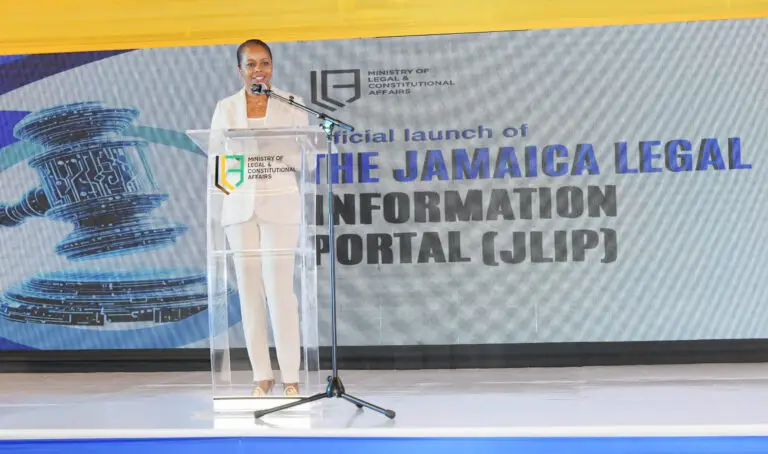KINGSTON, Jamaica — As Jamaica inches closer to the end of the current parliamentary term, discussions surrounding electoral reform — particularly the proposal for fixed general election dates — have resurfaced with renewed focus.
Minister of Legal and Constitutional Affairs, Marlene Malahoo Forte, has confirmed that the idea remains on the national reform agenda. Speaking during a virtual town hall hosted by the Private Sector Organisation of Jamaica (PSOJ) on July 30, the minister emphasized that while no definitive decision has yet been reached, significant thought has been given to the merits and complexities of institutionalizing a fixed election cycle.
Under the existing legal framework, Section 64(2) of the Jamaican Constitution grants the sitting prime minister wide discretion to determine when national elections are called, so long as they fall within the five-year lifespan of Parliament. Critics argue this flexibility allows for tactical election timing, often for political gain.
Malahoo Forte noted that while the Constitutional Reform Committee (CRC) acknowledged the widespread support from civil society and political commentators for more predictable election timing, it also cautioned against adopting a rigid, inflexible date. Instead, the Committee proposed a compromise: enshrine a fixed five-year parliamentary term in the Constitution, but give the prime minister a defined three-month window within which to set the actual election day.
“The goal is not just fixing a date,” Malahoo Forte explained, “but creating a framework that balances predictability with practical governance needs — especially in a country as small and politically dynamic as Jamaica.”
The suggestion to formally involve the Electoral Commission of Jamaica (ECJ) was also raised, given its existing mandate to oversee electoral matters. However, any fundamental change to the life or structure of Parliament would require a constitutional amendment — a process that demands bipartisan political consensus and deep public consultation.
The minister pointed to the 2020 general elections — held in the thick of the COVID-19 pandemic — as a critical example. Then, Prime Minister Andrew Holness opted to hold elections six months ahead of the Parliament’s expiration, citing the constitutional limitations on extending Parliament’s life outside of wartime and the absence of pandemic-specific provisions.
“As we once again approach the natural end of the parliamentary term,” Malahoo Forte said, “we are witnessing a more disciplined approach to the process. Despite political pressure, the prime minister is following the constitutional timeline, reducing speculation and fostering greater public confidence.”
While no binding resolution has been made, Malahoo Forte expressed personal support for reform. “I believe the country would benefit from more certainty around elections. This is not just a political issue — it’s a matter of democratic maturity.”
As reform efforts continue, Jamaicans await whether the next phase of constitutional evolution will bring with it a more structured and transparent approach to the nation’s most decisive democratic exercise.

